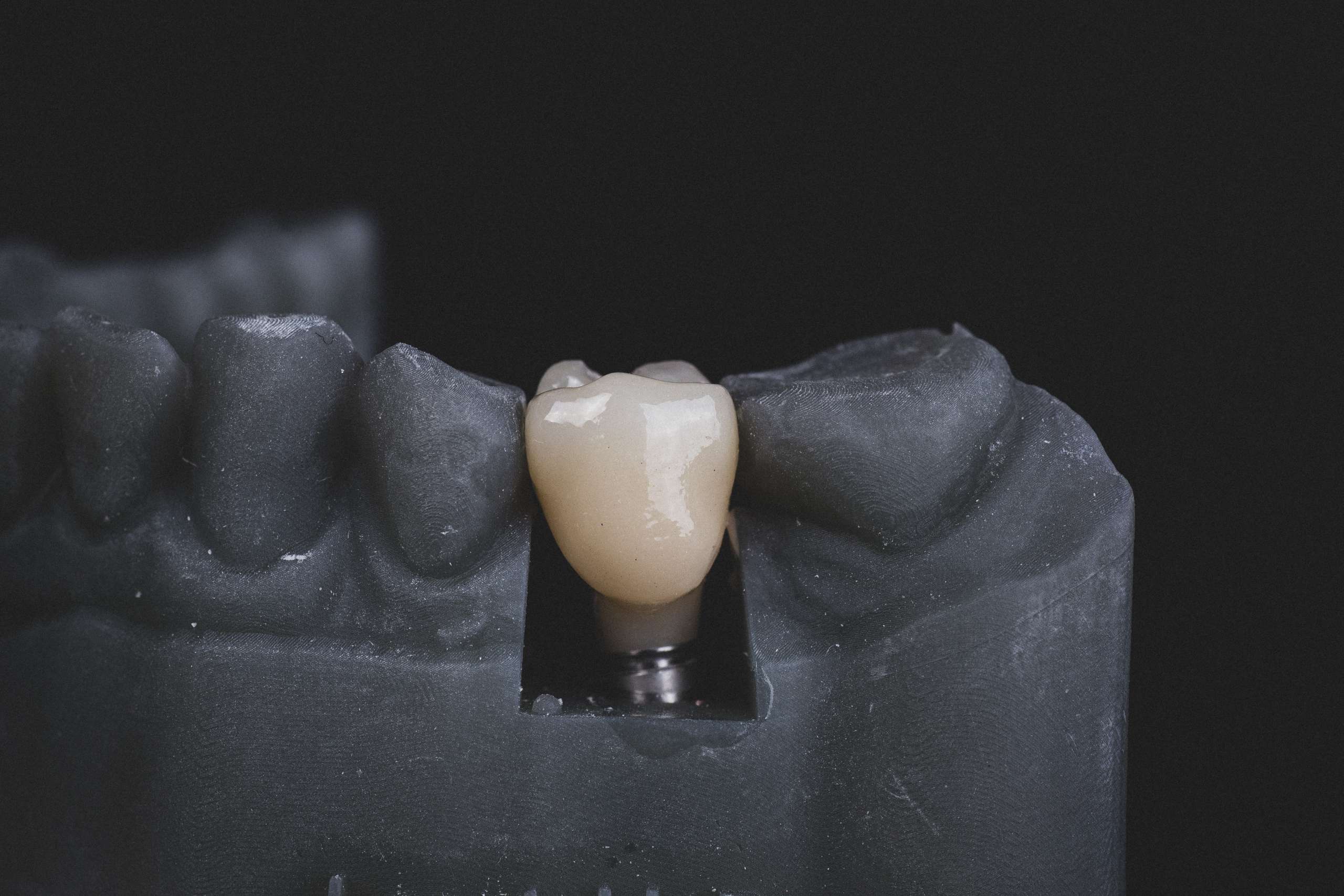How To Take Care of Dental Implants
Are you searching for ‘How to take care of dental implants’?
Getting dental implants is the most effective way for you to have a beautiful smile if you are missing a tooth or two. A lot of people are straying away from getting dentures because of its inconvenience from removing it and instability which could be embarrassing for a lot of people. According to the American Academy of Implant Dentistry, 3 million people have implants and that number is growing by 500,000 a year.
To fully utilize the benefits of having dental implants, you need to fully understand and make sure that you practice good dental implant care that will keep your implants longevity and maintain a healthy oral health. Proper maintenance of your dental implants will ultimately save you time, money, and discomfort.

What Are Dental Implants?
In dental implant surgery, tooth roots are replaced with metal posts that resemble screws, and damaged or missing teeth are replaced with prosthetic teeth that closely match your teeth in appearance and function. Fixed (permanent) or removable replacement teeth that are created to match your original teeth can be supported securely by implants. Since dental implants are constructed from biocompatible materials like titanium and zirconia, they feel and look much like your natural teeth.
A dental implant is surgically inserted into the jawbone to replace a natural tooth’s missing root structure. The second phase, in which artificial teeth are created and connected to the implant abutments, starts once the implant has bonded to the jawbone. The posts holding the implant in place are known as abutments. The abutments, which stick out through the gums and serve as secure anchors for the artificial teeth, are then fitted with small posts. Attaching the artificial teeth to the abutments completes the implant procedure.
Why are dental implants done?
When you have a missing tooth, the surrounding teeth tend to shift out of position, and the bone where the tooth once was starts to deteriorate. The only dental restoration method that preserves natural bone and encourages bone growth is dental implants. Dental implants can benefit your teeth, gums, and jawbone’s health in addition to restoring lost teeth.
In general, dental implants may be right for you if you:
Thinking of getting dental implants? Dr. Avi Israeli of Sage Dental and Spa is here to serve you. Call our dental office for your appointment preferences.
Call Now to learn more about our dental services!
Can Anyone Get Dental Implants?
You are most likely a candidate for dental implants if you have one or more missing teeth, whether you were born without them or had to have one removed because of an accident, an infection, or decay.
Most people who are healthy enough to have an oral surgery or dental extraction can be considered for a dental implant. Patients should have sufficient bone to support the implant, and as well as healthy gums. They must be dedicated to maintaining proper oral hygiene and going to the dentist on a regular basis.
However, there are a lot of variables that affect how, when, and whether you fit the criteria for dental implants, such as:
What Are the Advantages of Dental Implants?
There are many advantages to dental implants, including:
Improved appearance – Dental implants resemble your natural teeth in appearance and comfort. They also become permanent since they are made to fuse with bone. With this, you will have a better smile that will give you more self-esteem and confidence.
Improved natural speech – If your dentures don’t fit properly, your teeth may slip around in your mouth and cause you to mumble or slur your words. You may speak with dental implants without worrying that your teeth could slip, and that will make you talk naturally and confidently.
Improved comfort – Implants alleviate the discomfort associated with removable dentures because they become a permanent part of you.
Easier eating – Chewing can be challenging with sliding dentures. Dental implants function like your natural teeth, allowing you to enjoy the foods you love painlessly and comfortably.
Increased self-esteem – Dental implants can restore your smile and boost your self-esteem.
Better oral health – Unlike a bridge supported by teeth, dental implants don’t need the reduction of other teeth. More of your natural teeth are left unaltered to support the implant, enhancing your oral health over the long run. Additionally, individual implants make it simpler to clean in between teeth.
Durable – Implants are incredibly long-lasting and durable. Many implants can last a lifetime with proper care.
Convenient – As their name implies, detachable dentures are removable. Implants no longer need to be removed in public or be secured in place with adhesives, eliminating the embarrassing inconvenience.
Easy to maintain – Dental implants are simple to maintain because they need the same care as natural teeth, including twice-daily brushing and flossing, routine dental checkups, and regular visit to the dentist.
Why It’s Important to Take Care of Your Oral Hygiene For Dental Implants
Dental implants are not made of enamel (thin outer covering) like natural teeth are. As there is no enamel for the plaque to deteriorate, they do not develop cavities as a result. This does not negate the significance of maintaining proper dental hygiene, though.
When you neglect your dental health, bacteria in the plaque will accumulate close to your gums and could lead to gum disease. For instance, bleeding of the surrounding gum tissue is a typical indicator of dental implant issues. This is a condition known as mucositis.
Other problems that indicate you’re heading towards dental implant failure include:
How To Take Care of YOUR Dental Implants
1. Post Surgery Dental Implant Care
The entire recovery from dental implants can take up to six months. However, if you don’t take care of them straight away, that recovery time may be prolonged. It is advised to consume only soft foods for the first 5-7 days following surgery. Avoid spicy foods and hot beverages during this time as well.
Alcohol should also be avoided for the first two to three days following the placement of dental implants. This is due to the fact that alcohol use could slow the recovery process by hindering the healing process. As a result, your dentist could advise refraining from alcohol until your dental implants are fully recovered.
2. Brush Daily
You should brush your teeth twice a day as part of your oral hygiene routine. It is advised to use both a soft-bristle toothbrush. To clean the difficult places to reach surrounding your dental implants, you can also use a Proxabrush. This will delicately remove the plaque around your teeth and implants without hurting them, your gums, or making your mouth uncomfortable.
3. Floss Daily
Dental implants make flossing as crucial as ever. This is because plaque, which can cause other dental hygiene problems, can quickly build up around your implants. Every day, you should floss once, at the very least. Even an interdental brush cannot reach those difficult-to-reach areas that the dental floss can. Try floss threaders if you’re having trouble using regular dental floss.
4. Use Low-abrasive Products
Once you have dental implants, you should try to limit your purchases to sensitive cleaning products, such as mouthwash and toothpaste. This is because too abrasive products may result in intense discomfort. In general, you should stay away from oral hygiene products with strong flavors like mint or cinnamon because they can be uncomfortable for the mouth.
5. Avoid Sticky and Hard Foods
Because dental implants restrict your capacity to fully chew, you must avoid certain foods in order to maintain the health of your implants. Avoid putting things like popcorn, raw carrots, almonds, potato chips, and hard candies in your mouth if they are difficult to chew. Some foods you should avoid after getting implants include:
6. Quit Smoking and Drinking Alcohol
For your general health, it’s a good idea to avoid drinking and smoking or vaping. When you get dental implants, it’s crucial that you stay away from these substances.
Smoking can be particularly harmful at this time because it takes your dental implants roughly 6 months to heal. Tobacco use should be avoided if you want to be healthy in general. Smoking can drastically slow the healing process following surgery for dental implants. Long-term tobacco use can have a variety of negative effects on your mouth and teeth, from gingivitis to severe periodontitis, which can ultimately result in tooth loss.
Osseointegration, a process of bone fusion, starts as soon as implants are placed into the jawbone. The bone tissue on the implant surface develops into tiny pores throughout this process. For your implant to be healthy in the long run, osseointegration is necessary. Alcohol use can hinder this process and result in implant failure.
7. Drink Lots of Water
Water offers many advantages for your general health as well as for your oral health. One of the most important benefits for your oral health is that it stimulates salivation. Because it assists in removing excess food and bacteria and in neutralizing the acids created by bacteria, saliva is crucial for dental implants. Drinking water after meals is especially advantageous because it cleans your mouth even if you are unable to brush. Increasing your water intake can also help you feel less dehydrated if you have a dry mouth.
8. Visit Your Dentist Regularly
Regular visits to your dentist or hygienist are a great way to guarantee the durability of your dental implants. To prevent the early loss of dental implants, your dentist can identify issues early and offer treatments or professional cleanings. Your dental implants could last a lifetime with good maintenance and regular visits to the dentist.
How long will my dental implant last if I look after it properly?
Dental implants can last 20 to 30 years and are made to be a permanent solution for tooth loss. However, how well you maintain your dental hygiene and care for your teeth will have a significant impact on how long they last.
YOUR DENTIST FOR Dental Implants
Our dental team, headed by Dr. Avi Israeli at Sage Dental and Spa Wall Township is an expert who specializes in implants. We will make sure that we help you improve your smile! Call us and book an appointment for your implant services!

